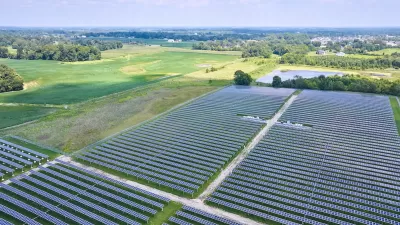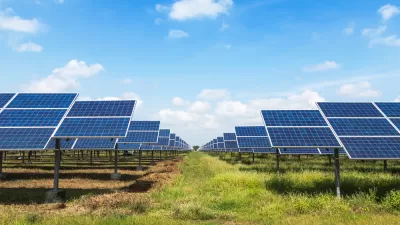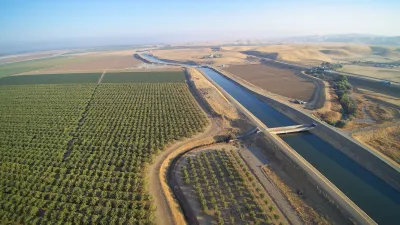Despite concerns that solar projects could lower property values, new research finds they actually rose slightly in areas near utility-scale solar installations.

Large solar farms do not have a negative impact on nearby property values in the Midwest, reveals a study from a Loyola University researcher. As Kari Lydersen notes in an article for Canary Media, they may even have a slight positive effect.
The study found that property values near 70 large-scale solar farms in the Midwest actually increased by 0.5 percent to 2 percent. The researcher, Gilbert Michaud, noted that the installations can also drive local economic development through new jobs and tax contributions. “The most beneficial impact on property values was from solar farms between 5 and 20 MW in size, perhaps in part because these can be hidden by vegetative buffers.”
The study was a response to concerns by many residents in rural areas that solar projects will reduce property values and have a negative impact on local communities. Michaud hopes local officials will take note, saying, “Many of these folks are now making decisions about whether to host a large-scale solar project in their community, and the potential impacts to property values is often something that comes up in local debates and at local hearings. Data can help tell a story and move the debate beyond anecdotal or subjective arguments.”
FULL STORY: Solar farms don’t hurt nearby property values, new research finds

Study: Maui’s Plan to Convert Vacation Rentals to Long-Term Housing Could Cause Nearly $1 Billion Economic Loss
The plan would reduce visitor accommodation by 25,% resulting in 1,900 jobs lost.

North Texas Transit Leaders Tout Benefits of TOD for Growing Region
At a summit focused on transit-oriented development, policymakers discussed how North Texas’ expanded light rail system can serve as a tool for economic growth.

Using Old Oil and Gas Wells for Green Energy Storage
Penn State researchers have found that repurposing abandoned oil and gas wells for geothermal-assisted compressed-air energy storage can boost efficiency, reduce environmental risks, and support clean energy and job transitions.

Planting Relief: Tackling Las Vegas Heat One Tree at a Time
Nevada Plants, a Las Vegas-based nonprofit, is combating the city’s extreme urban heat by giving away trees to residents in underserved neighborhoods, promoting shade, sustainability, and community health.

How Madison’s Tree Planting Efforts Are Growing a Healthier Community
Madison’s annual tree planting initiative is enhancing environmental resilience, public health, and community livability by adding 1,400 carefully selected trees citywide, with strong community and institutional support for urban forestry.

Texas State Bills Could Kill Transit Funding in Dallas, Austin
State lawmakers could pull funding from the state’s largest transit agency and the ambitious Project Connect, a voter-approved transit project in Austin.
Urban Design for Planners 1: Software Tools
This six-course series explores essential urban design concepts using open source software and equips planners with the tools they need to participate fully in the urban design process.
Planning for Universal Design
Learn the tools for implementing Universal Design in planning regulations.
Ascent Environmental
Borough of Carlisle
Institute for Housing and Urban Development Studies (IHS)
City of Grandview
Harvard GSD Executive Education
Toledo-Lucas County Plan Commissions
Salt Lake City
NYU Wagner Graduate School of Public Service





























